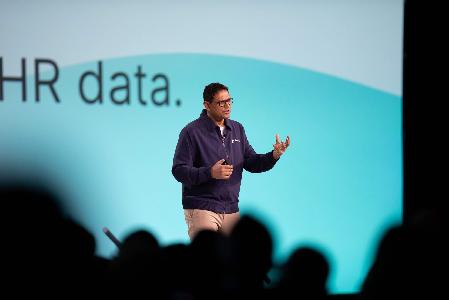“In history lies all the secrets of statecraft.”
Quite the noble sentiment from Winston Churchill. Noble, but utterly useless if the public does not have easy access to that history. That’s where the Delaware Public Archives comes in.
Delaware Public Archives will turn 110 years old this year, making it one of the oldest public archives in the country — predating major federal efforts to implement archival departments in every state.
We're caretakers, we're curators, we're not gatekeepers. Any way we can keep the doors as wide open as possible.
Not only is the organization responsible for preserving the dustiest of tomes from American antiquity, but it also works with other state agencies to document modern records.
The question is, how do you make vaults of records from the oldest state in the country easily accessible in the digital age while still keeping modern state agencies transparent?
It’s a lot of work, but the 30-person staff is pushing for digitization harder than ever.
According to Historic Markers Coordinator Sarah Denison, the surge in digitization goes hand-in-hand with the realization that digital records are not only expected, but in demand. That means all hands are on deck at the Delaware Public Archives.
“We’ve really been focusing more from a preservation point of view,” she said. “We’re growing our digital archives and making them as accessible as possible with our limited means.”
Earliest records are from the 1600s and document colonial Swedish trade. Digitizing early American documents like those are pertinent for preservation — less wear and tear when constituents pull them from the stacks. But how does the department keep state agencies on their toes when it comes to modern-day records?
“It’s part of our mandate that we go out and work with state agencies and make sure they’re keeping the [records] they’re supposed to,” said Denison. The Public Archives is responsible for laying out “retention schedules” that lay out which records must remain permanent and which are allowed to be disposed of after a given amount of time.
While the department is digitizing both modern and deeply historical documents, the records in highest demand for digitization are genealogical. “The Mormon church sends volunteers to do digitization efforts for genealogy,” Denison said. “They’re really into genealogy and they’re amassing a huge database.”
Denison said Delaware Public Archives is doing its best to push for digitization efforts while balancing other responsibilities. At the end of the day, she said, access is the department’s priority.
“That’s our main focus — how can we make it as easy as possible for the public to see the documents they’re entitled to?” she said. The answer? Digitization.
“That’s our job. We’re caretakers, we’re curators, we’re not gatekeepers. Any way we can keep the doors as wide open as possible — whether they’re digital or actual physical doors.”
Join the conversation!
Find news, events, jobs and people who share your interests on Technical.ly's open community Slack

Delaware daily roundup: Leadership changes; Join our Slack; Chemours shakeup

Delaware daily roundup: AI in DE; UD professor gets Fulbright; High school chefs win award

Delaware daily roundup: AI isn't that new; Delaware Earns launches early; Prelude Therapeutics grant

